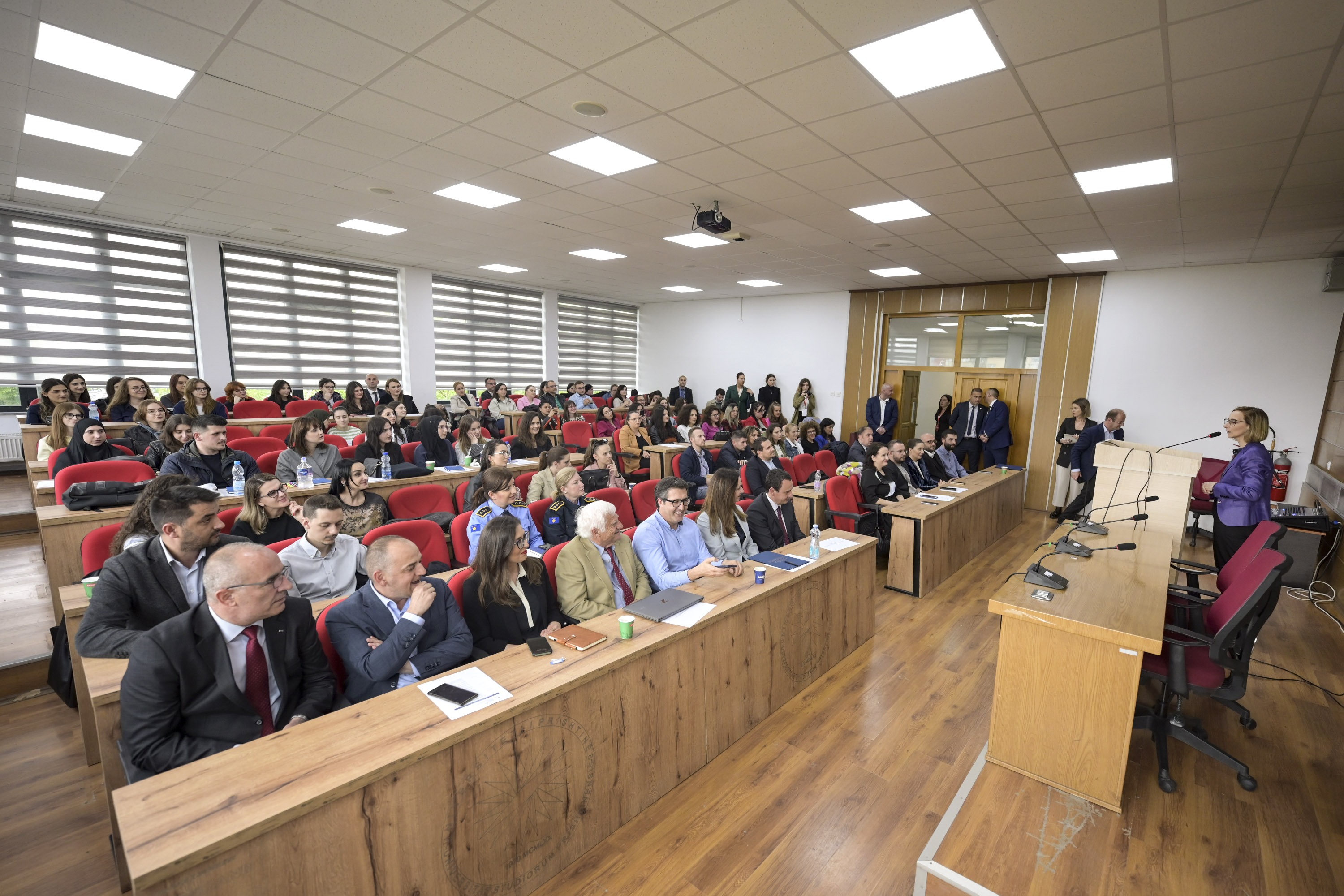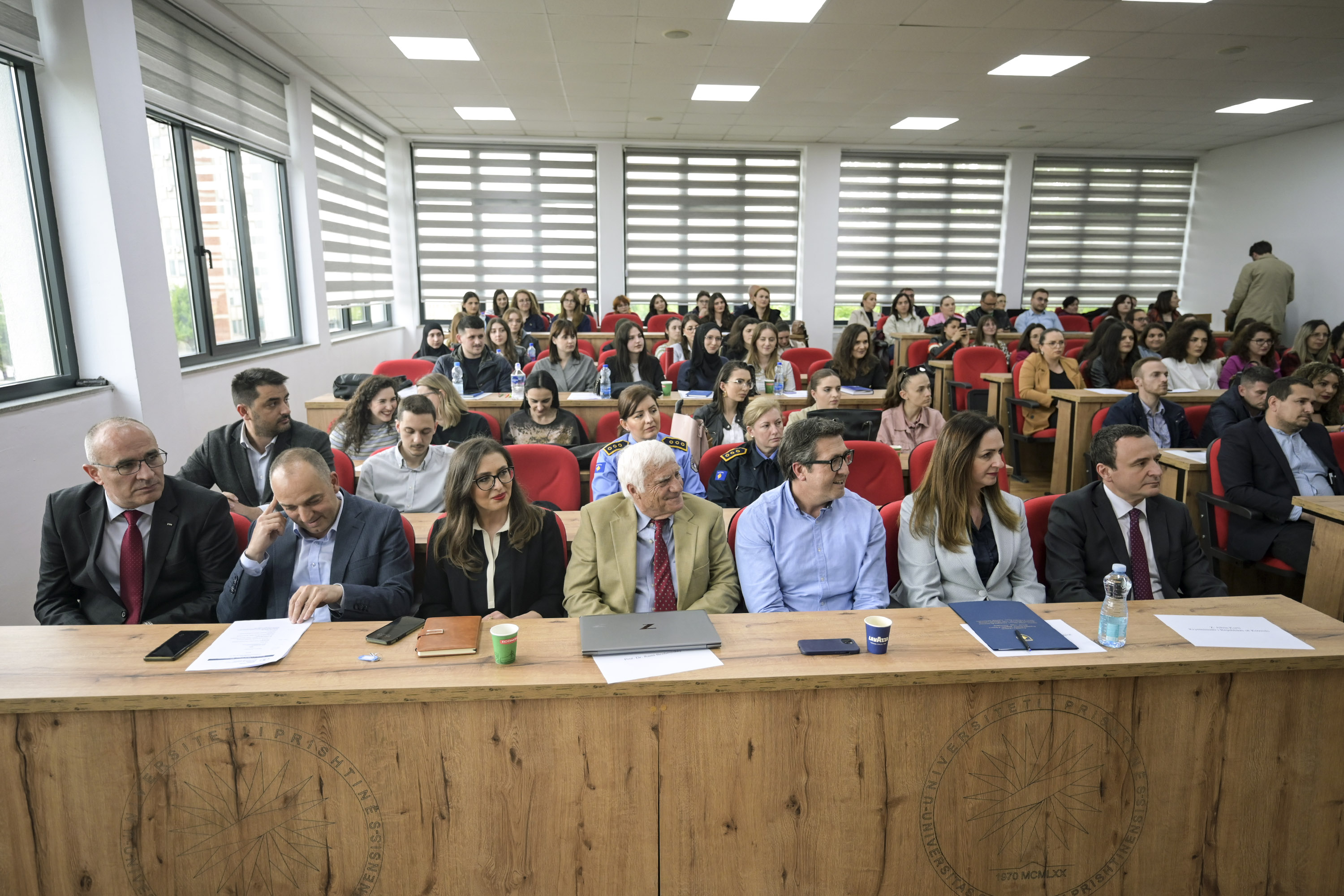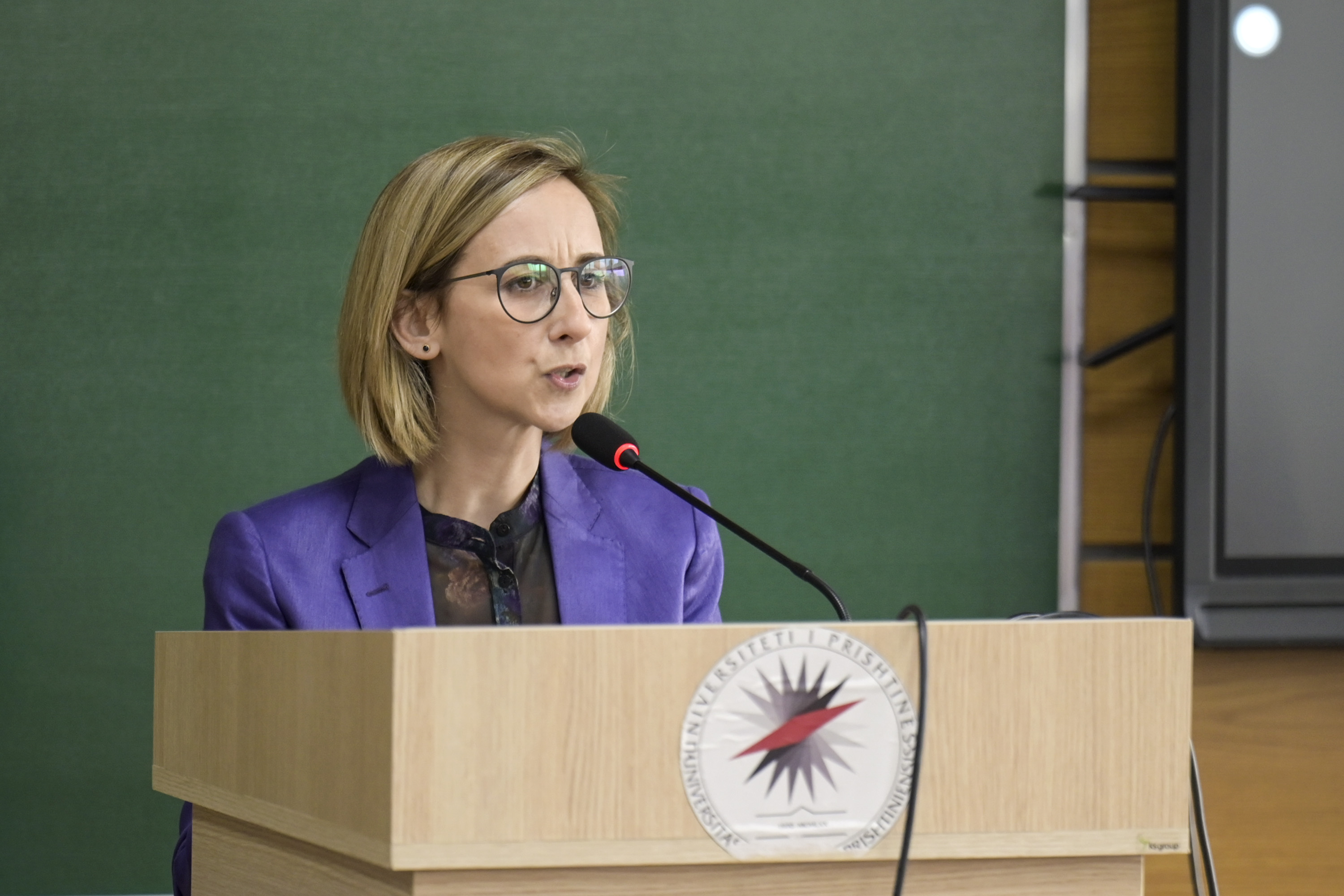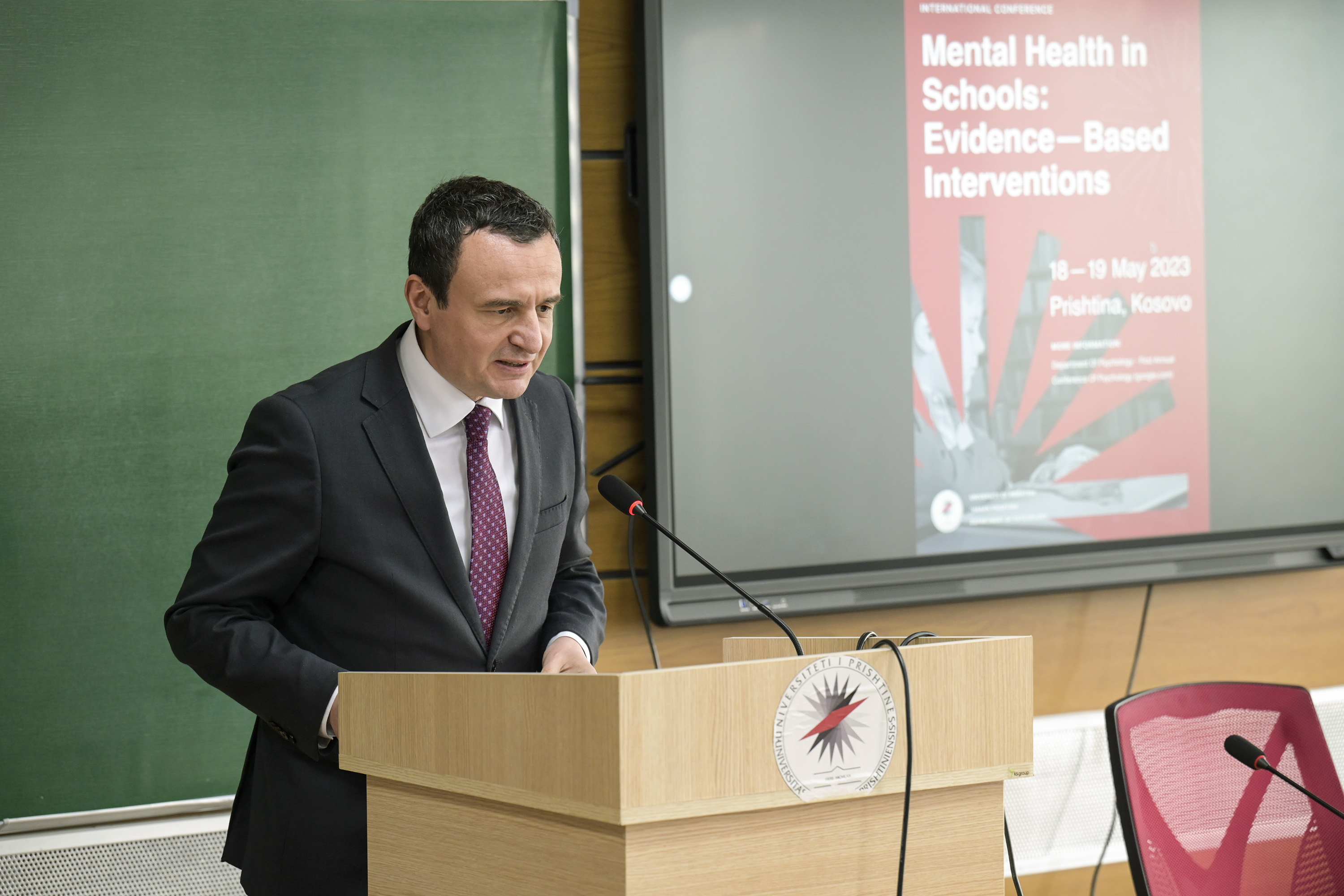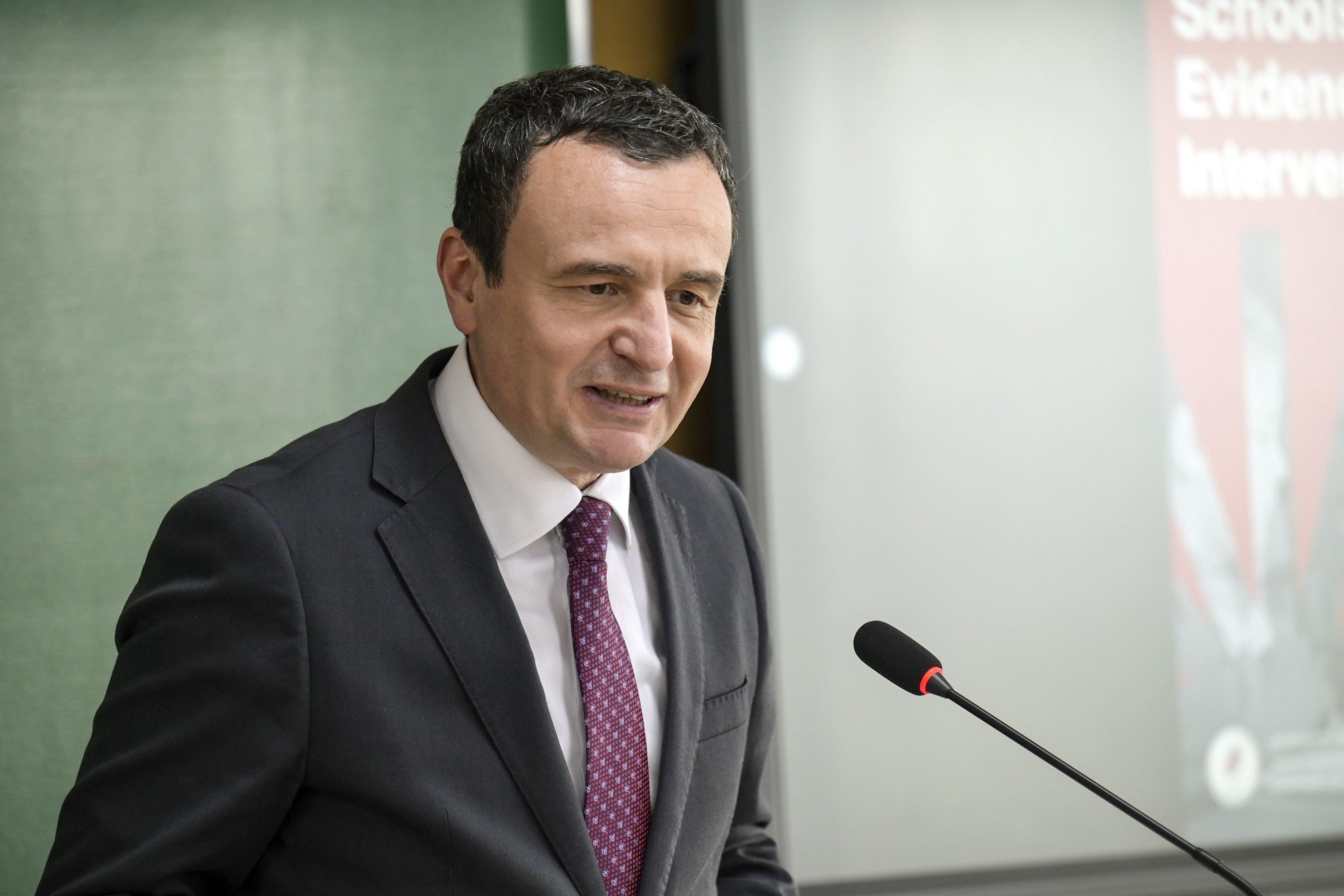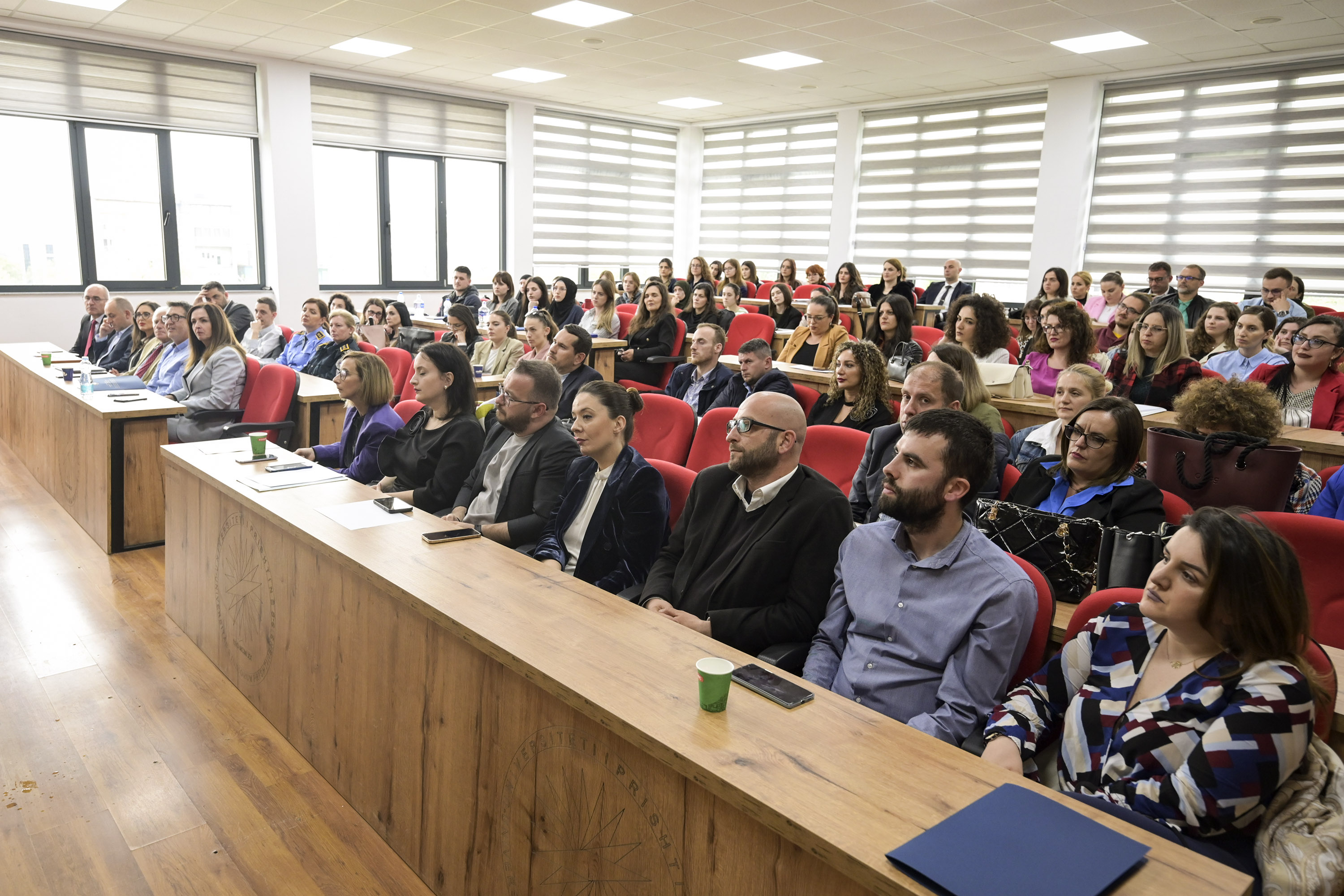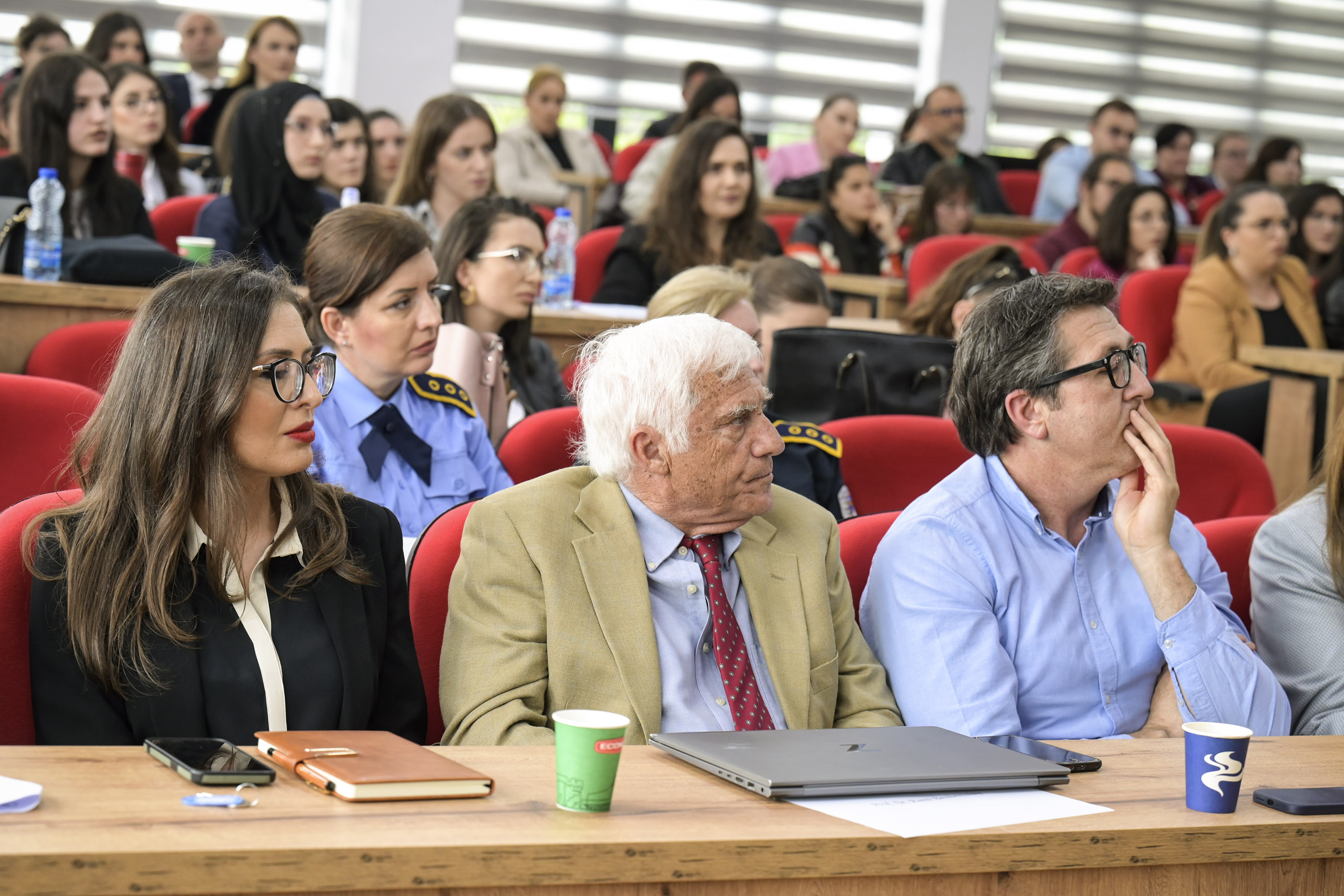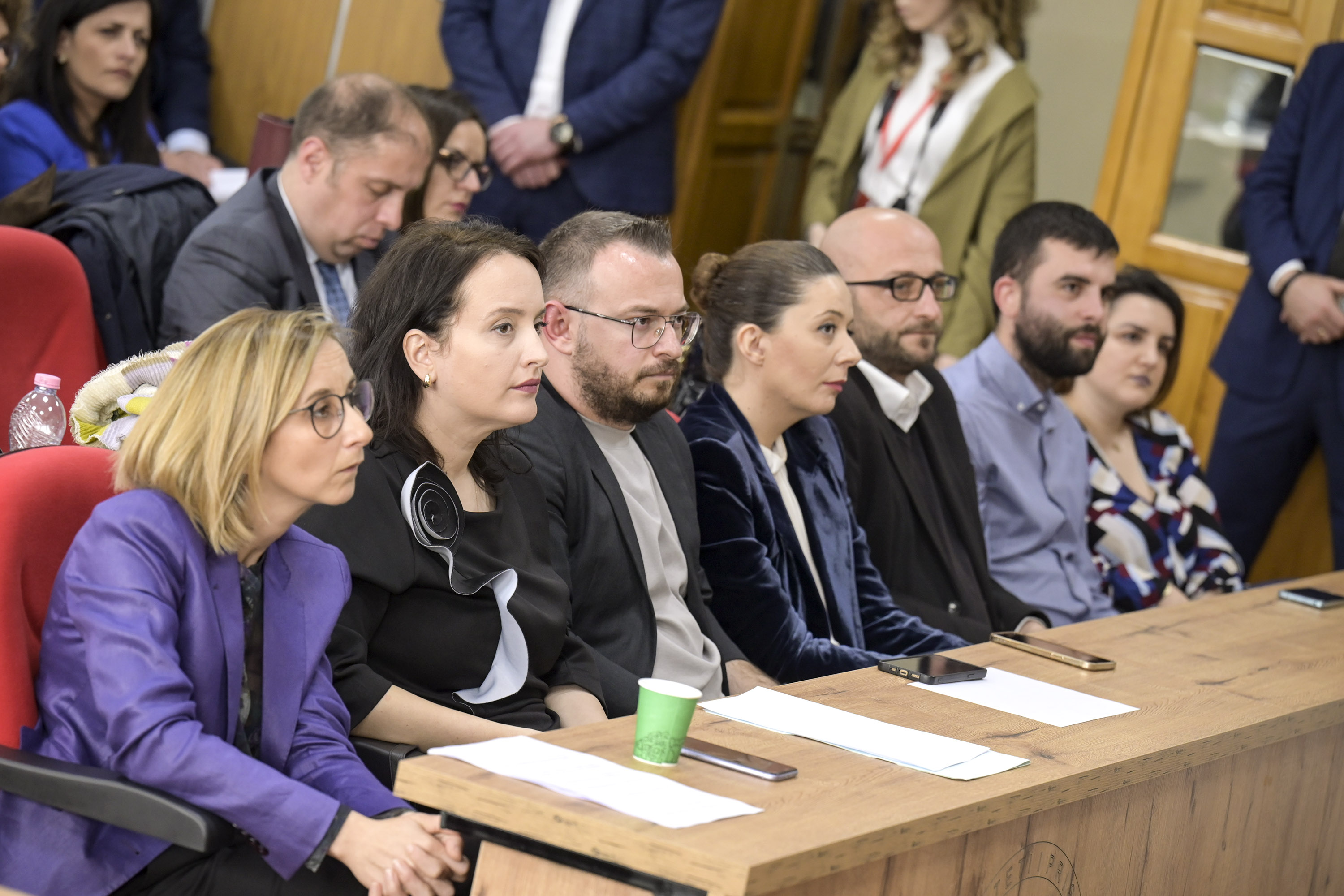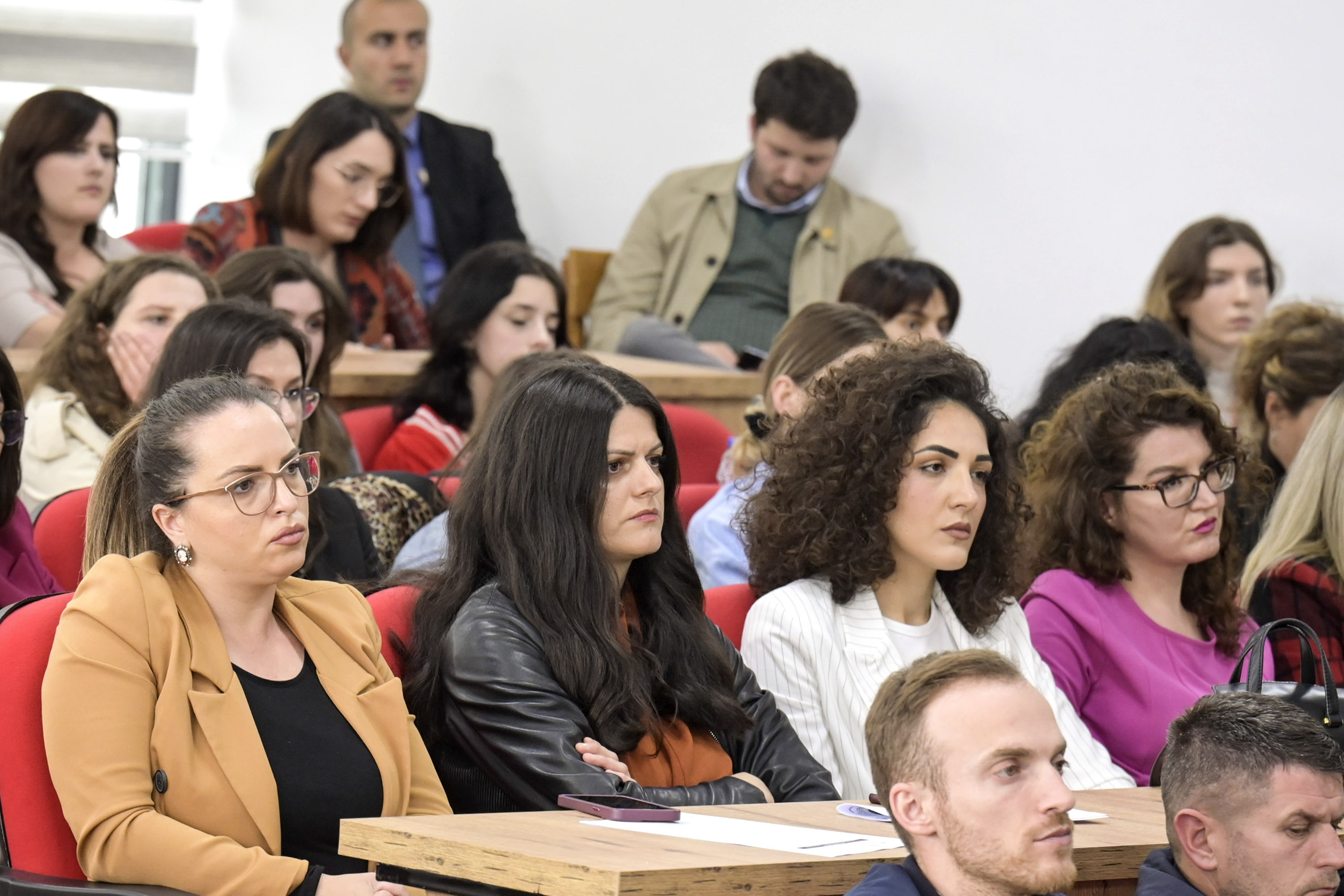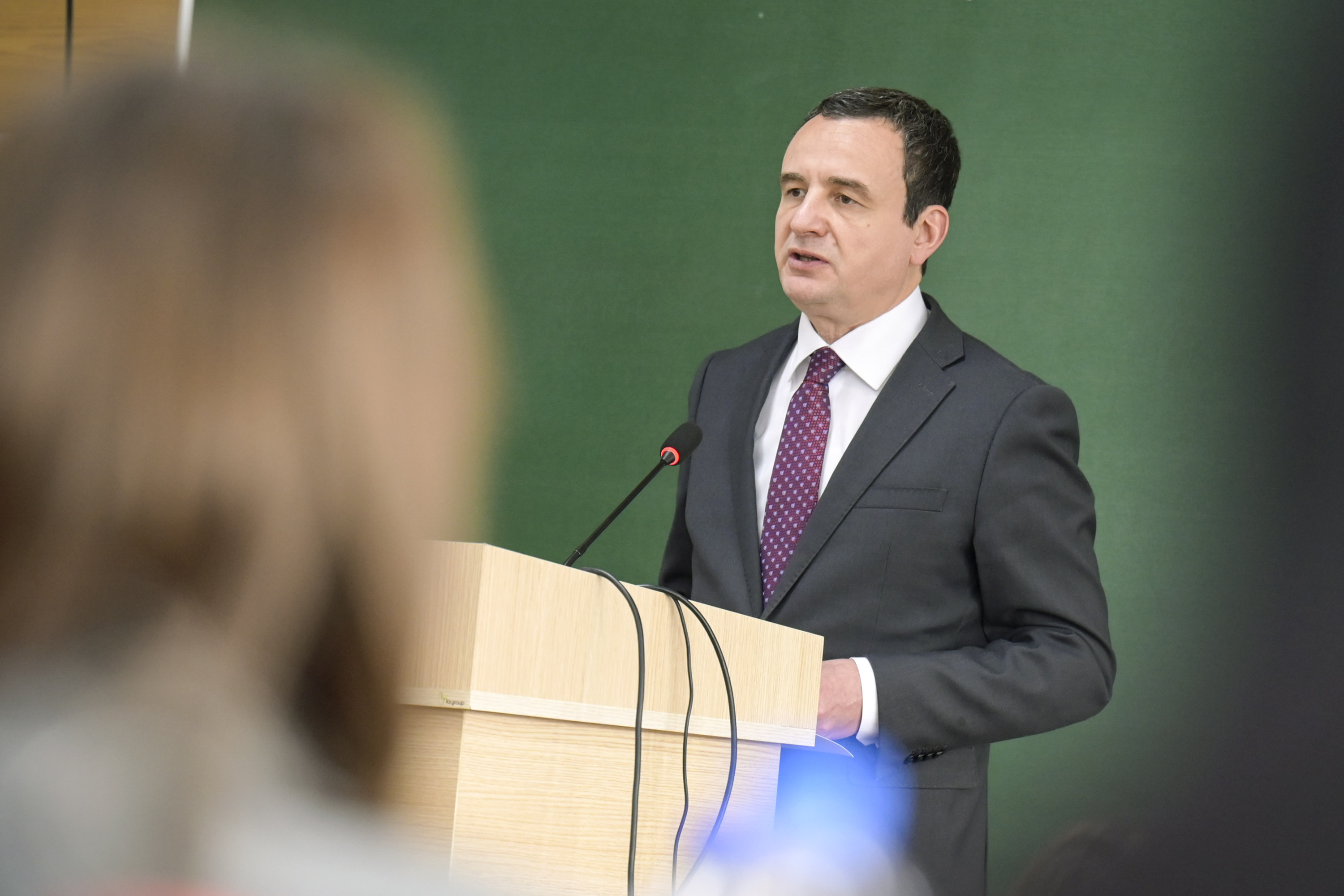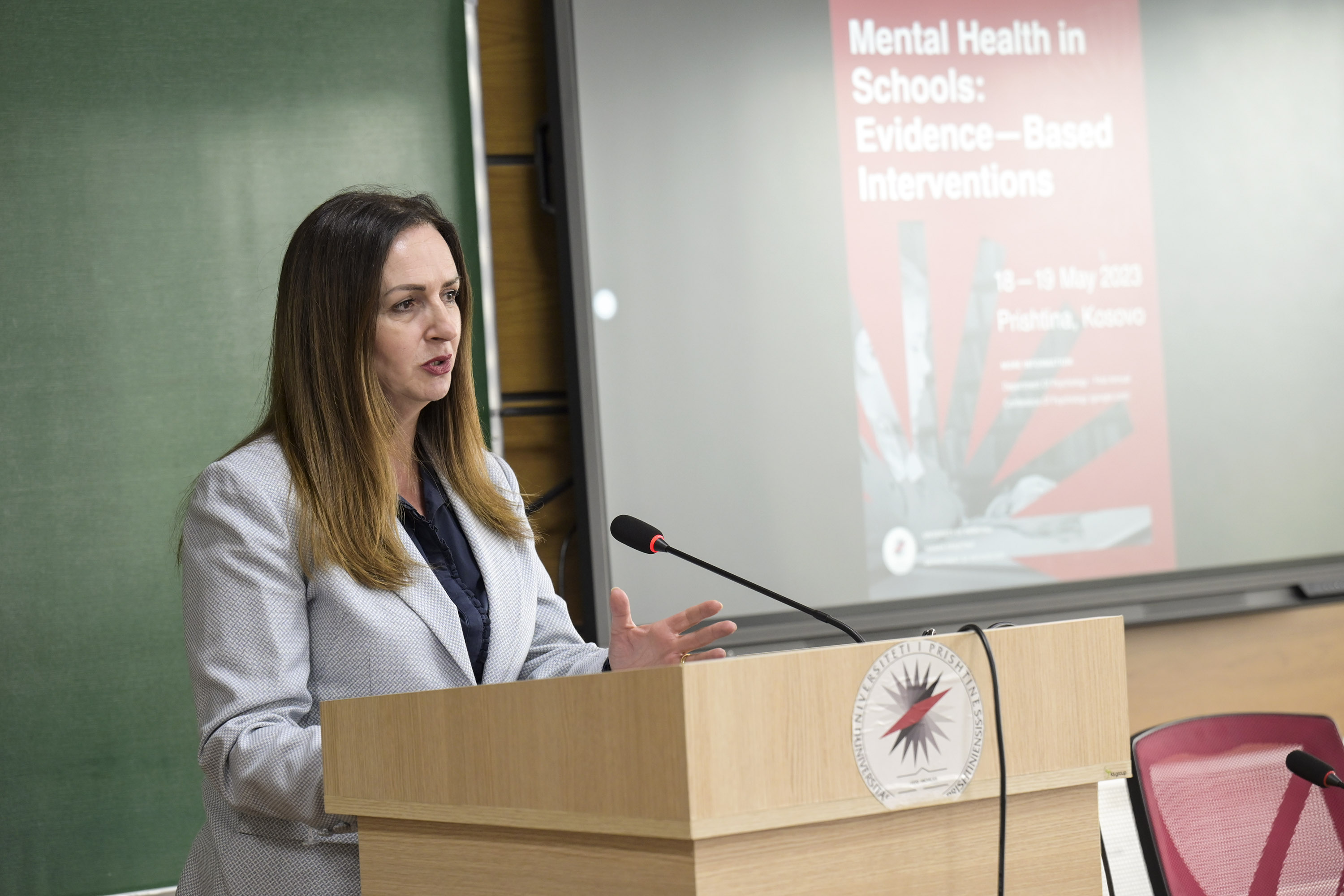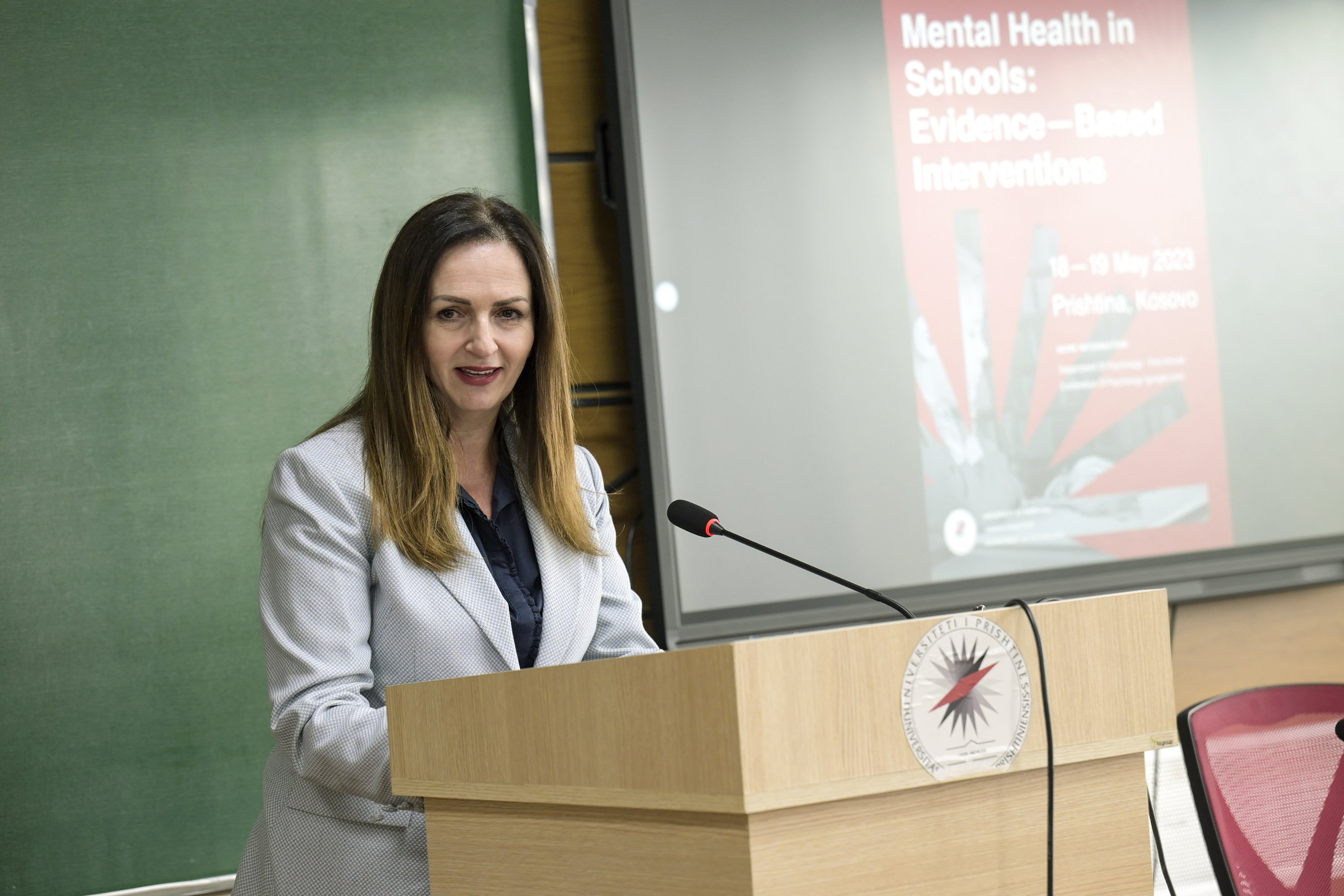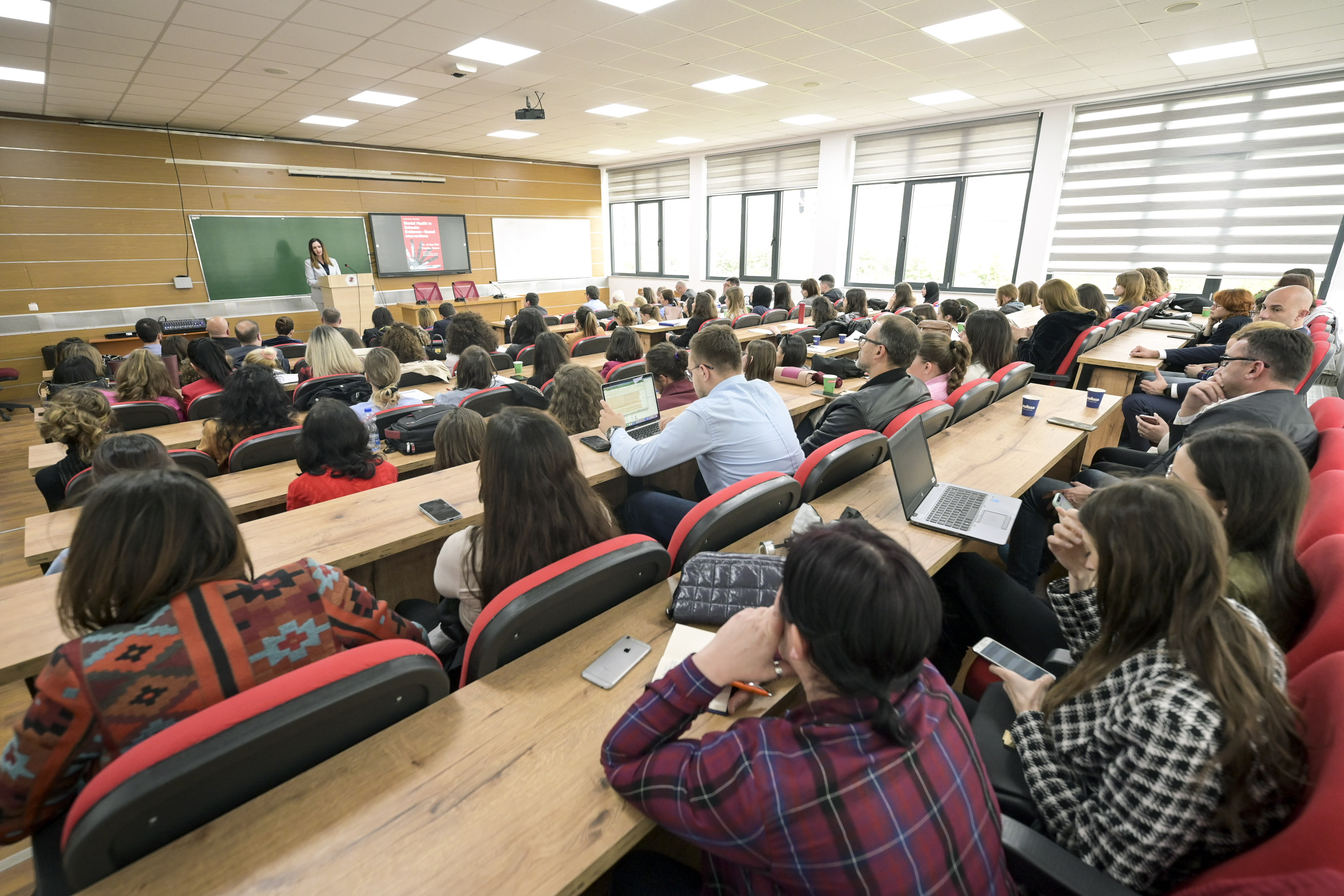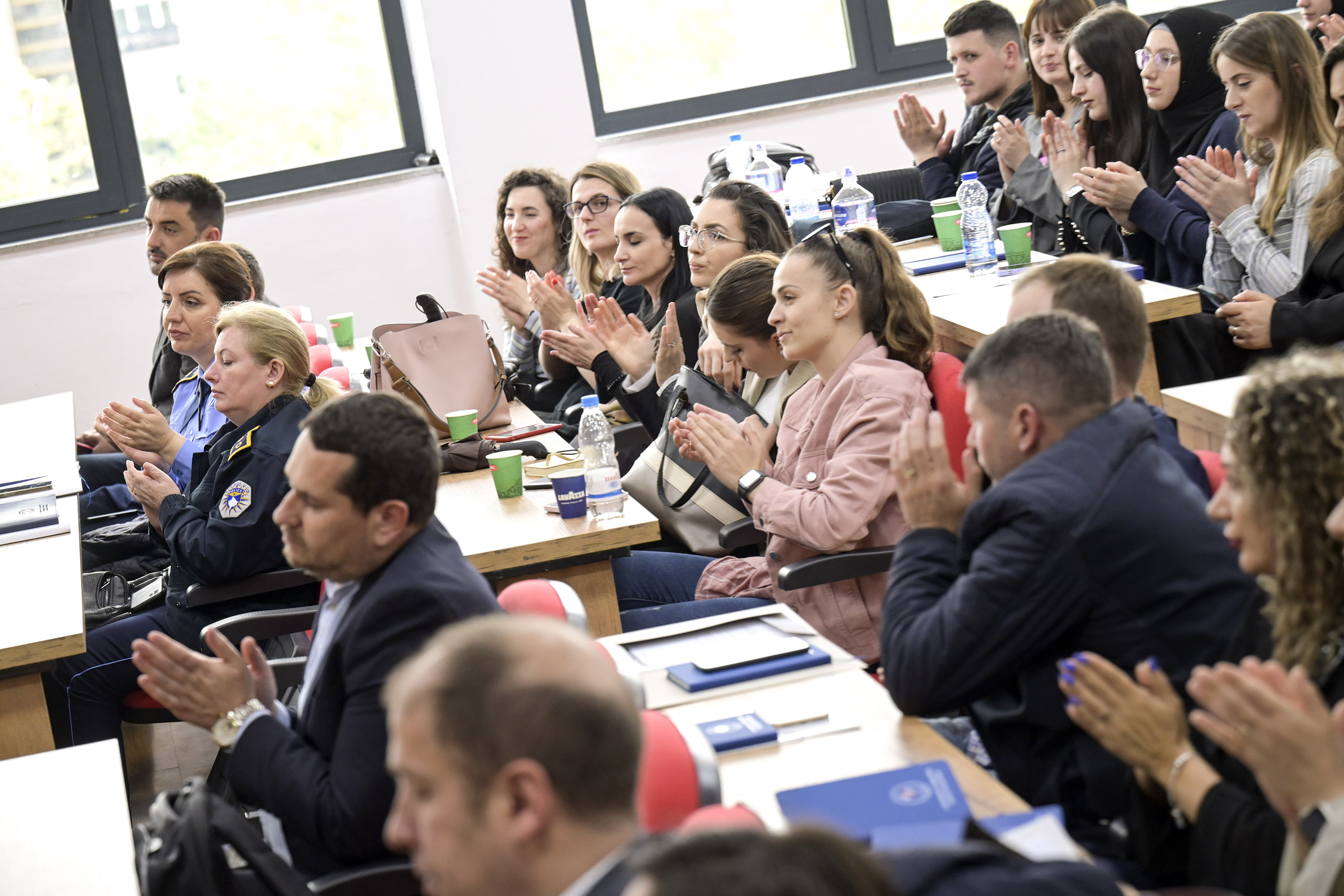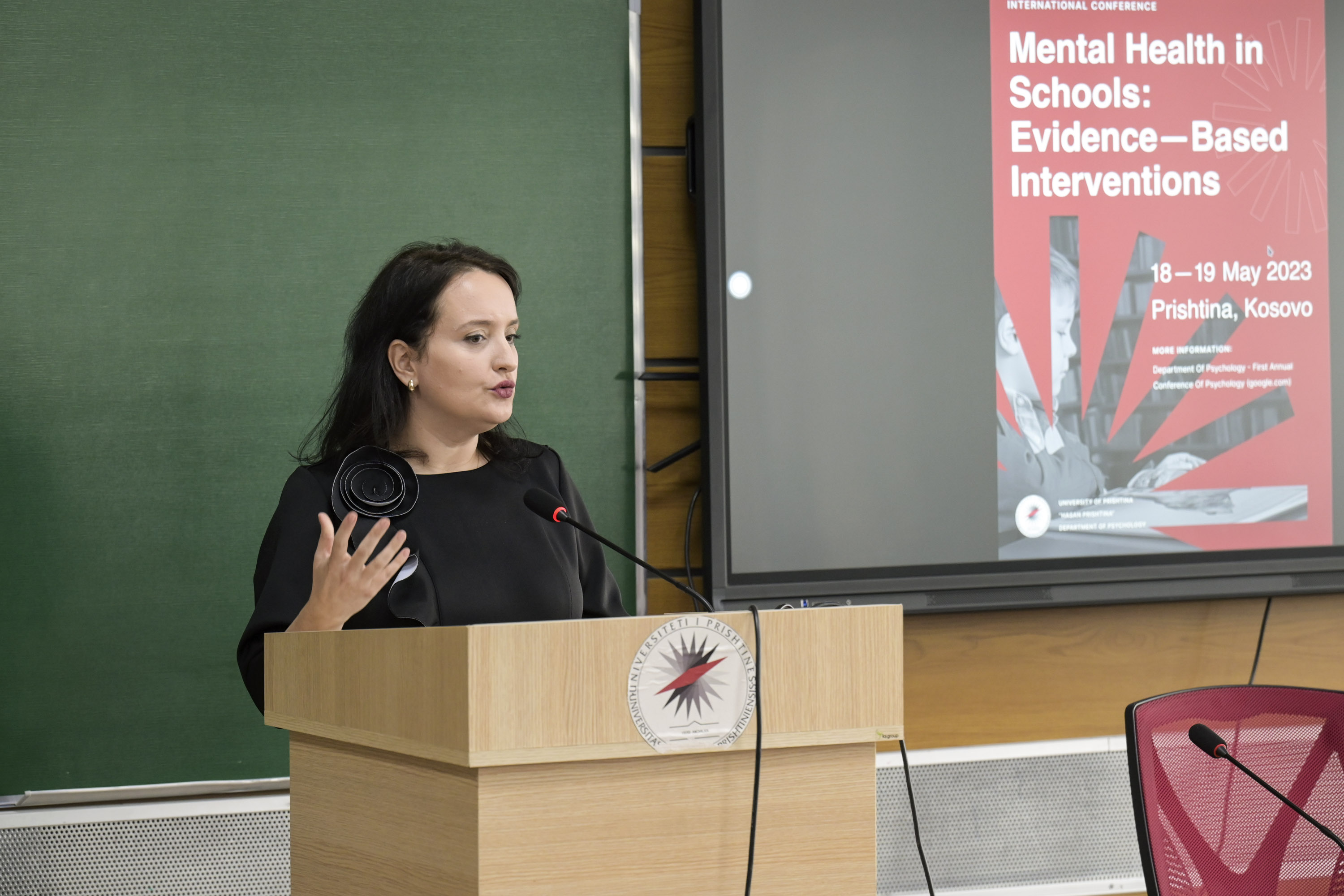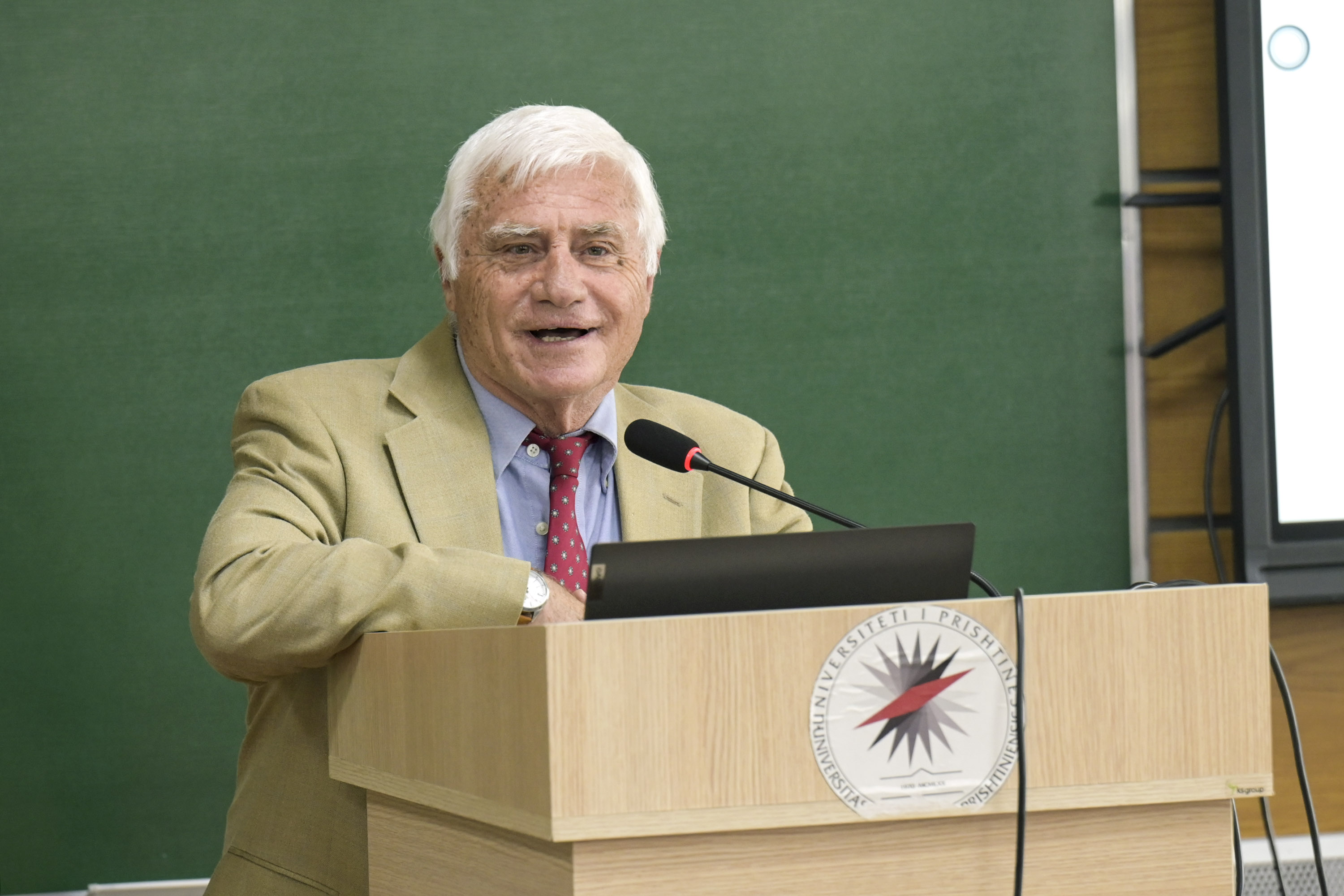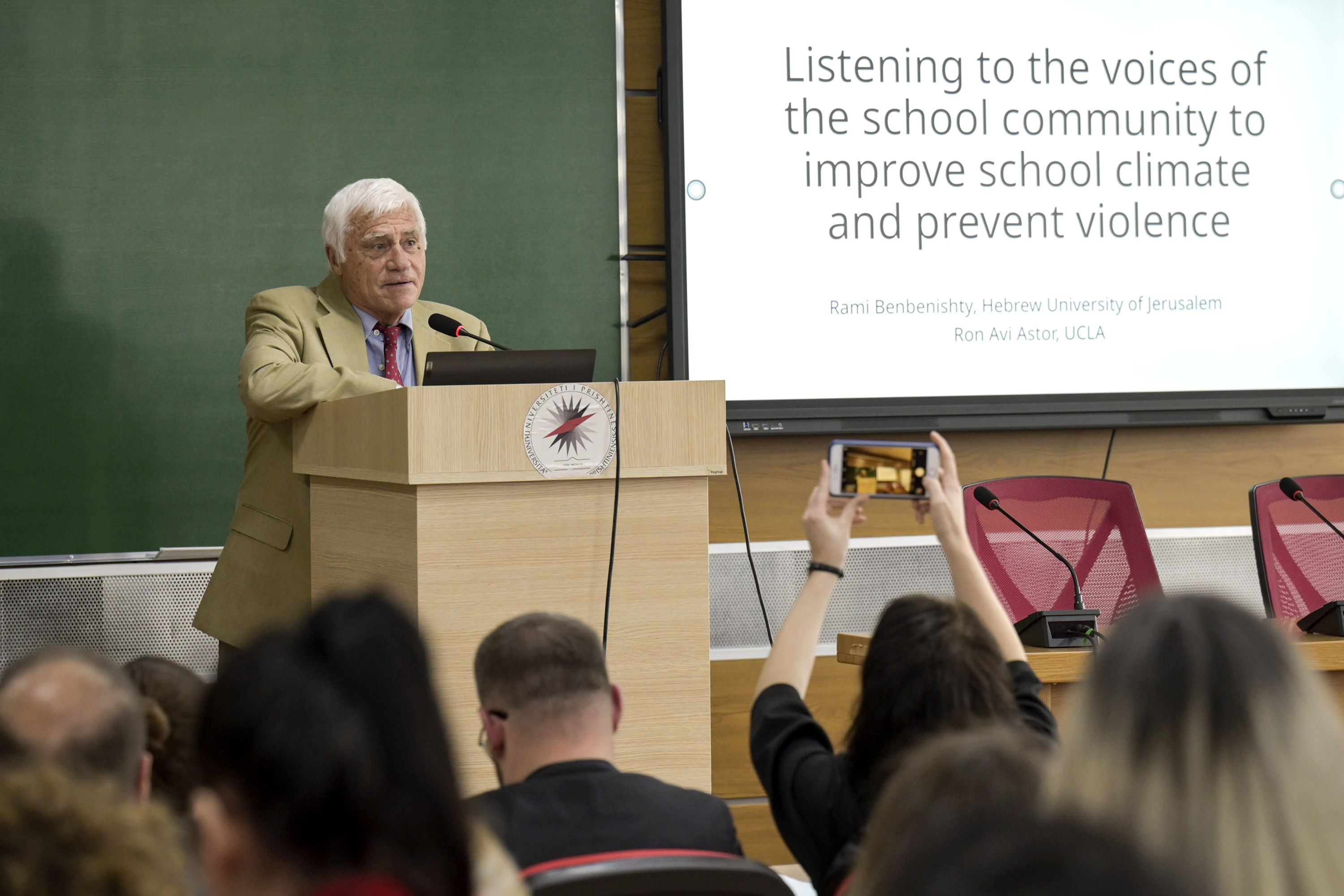Prishtina, 18 May, 2023
The Prime Minister of the Republic of Kosovo, Albin Kurti, together with the Minister of Education, Science, Technology and Innovation, Arbërie Nagavci, today participated in the International Psychology Conference “Mental Health at School: Interventions based on evidence” held at the premises of the Faculty Philosophical.
In his speech, Prime Minister Kurti said that mental health is an essential element for personal, community and socio-economic development. In this regard, he said that the Government of Kosovo, which strongly believes in the potential of our human capital, has developed policies that focus on children and young people who are the axis of our cross-sectorial orientations in education, health, well-being, culture, sport and economy.
While the new curriculum for ages 0-6 is being finalized, the Prime Minister added that we are increasing children’s access to early education, where we have significantly increased the number of support professionals who help in the development of students, such as assistants and psychologists.
“So that no one is left behind, in two years, more than 160 assistants have been engaged for children with special needs. For the year 2023, we have budgeted 300 assistants, while we intend to finish the mandate with 500 assistants”, declared Prime Minister Kurti.
On the other hand, the Ministry of Education, Science, Technology and Innovation, in close cooperation with the Department of Psychology, is paying attention to the prevention and addressing of violence and harassment in schools, in which case Prime Minister Kurti emphasized that during the year of more than 200 professionals have been trained in the past.
In parallel with this, the Prime Minister indicated that for a comprehensive approach, the National Forum for Friendly Schools was established under the name “Growth Together”, this forum which advocates, promotes and coordinates the implementation of safety policies and the healthy development of children and young people.
During the conference, the prime minister paid attention to the work of the professors of the Department of Psychology, published 3 years ago, which, in addition to useful data for policy-making, also highlights the importance of the school climate, as well as the visibility of its connection with the level of violence and victimization.
At the end of his speech, the Prime Minister repeated that we should devote time to children because they are the present and the future of this generation. He hoped that the conclusions of this conference would highlight the challenges and provide valuable recommendations that can be used by all stakeholders.
The Prime Minister’s complete speech:
Dear Ms. Arbërie Nagavci, Minister of Education, Science, Technology and Innovation,
Dear Ms. Kaltrina Kelmendi, Head of the Department of Psychology,
Dear Professor Aliriza Arenliu, professor at the University of Pristina,
Dear Professor Rami Benbenishty, Professor Emeritus,
Dear Mrs. Besiana Masmurati, Director of Education in the Municipality of Pristina,
Dear professors, deputies, students,
Dear Professor Fitim Uka, Professor Mytaher Haskuka and all of you,
Thank you very much for the invitation and for this opportunity to talk here today about such a very important topic.
We all have the occasion when we are faced with a situation we have not experienced before, and we ask ourselves: what is the solution we should take, what path should we follow? So, what are those roads, those paths to cope better, more correctly, faster the situation we are in?
Sometimes meeting our needs requires special instructions and practices. And other times we enter new roles, sometimes not easy, in interactions, sometimes small, and other times bigger. But almost nothing demands greater attention to recognition and support than the well-being of children. When they are at home, at school, in the community, with friends, with teachers, with parents, grandparents, sisters and brothers, and in many other forms.
Being able to imagine the creativity and imagination of children is actually an almost unimaginable kind of challenge of ours. It requires overcoming barriers and addressing the challenges they may have. It also requires great individual, social and institutional encouragement and support.
I believe that mental health is essential for personal, community and socio-economic development. As an integral part of well-being, mental health encompasses our individual and collective ability to make decisions, to form relationships and to shape the world in which we live and operate.
As the Government of Kosovo, we strongly believe in the potential of our human capital. So we are developing policies that maximize it holistically. Children and young people are our primary focus in this regard. They are the axis of our cross-sectorial orientations in education, health, welfare, culture, sports and economy. A strong foundation in childhood and youth leads to healthier, happier and more productive lives.
We are increasing children’s access to early education and finalizing the new curriculum for ages 0-6. Meanwhile, we have significantly increased the number of support professionals who help in the development of students, such as assistants and psychologists.
So that no one is left behind, in two years, more than 160 assistants have been engaged for children with special needs. For the year 2023, we have budgeted 300 assistants, while we intend to finish the mandate with 500 assistants.
The Ministry of Education, Science, Technology and Innovation is collaborating closely with the Department of Psychology to monitor and assess the needs of schools.
Attention is being paid to preventing and addressing violence and bullying in schools. In order to improve access to mental health and psycho-social services for children and families, more than 200 professionals were trained last year.
Access to better services for our citizens, and especially for the youth and children of our country, in schools, hospitals, on the streets and in neighborhoods, is our common duty and responsibility. Institutions with all their mechanisms and officials must understand the importance and weight of this task. Our service is indispensable because we are chosen for the tasks entrusted to us. Our answer should be knowledge and competence at their service. Our action requires prudence and kindness, kindness to each other.
Therefore, we also need good teachers. Attentive psychologists and pedagogues. Vigilant social worker and sociologist. We need schools with quality education, but also safer schools.
For a comprehensive approach, we have established the National Forum for Friendly Schools with the name “Growing Together”. An integrated multi-stakeholder education, safety, and health and welfare body: advocates, promotes and coordinates the implementation of policies for the safety and healthy development of children and young people. Among the key axes of this Forum’s work is awareness and intervention in schools, regarding the prevention of all forms of violence; and increasing school capacities for identification, treatment and reporting of cases of violence.
A study by the esteemed professors of the University of Pristina, in the Department of Psychology, such as Aliriza Arenliu, Kaltrina Kelmendi, Zamira Hyseni Duraku and Jon Konjufca, show useful data for policymaking, for which I thank them for the work they have done. It is a valuable paper published in 2020, i.e. three years ago, on the multidimensional indicators related to violence in pre-university institutions.
I’m quoting part of the study: “Students who report low levels of family communication and lower levels of satisfaction with family relationships report higher levels of victimization and higher levels of use of peer violence.” So, the role of parents, the role of guardians, but not only, also siblings and other family members, are an important link for the prevention of violence in schools. Therefore, we must increase honest communication with children regardless of the topic. And especially let’s listen to them more.
On the other hand, this study also emphasizes the importance of the school climate, as well as the visibility of its connection with the level of violence and victimization. Therefore, social interactions for the emotional and social development of children should be strengthened. With safer spaces, with appropriate services, and the promotion of mental health care.
Problems are common. But I believe that the solutions are also feasible. Each one of us faces them, some less and some more, some more often and some less often. Mental health issues are challenging. But they are treatable, even manageable. Flexibility for their improvement, unlike the adult, the child at home and the student at school, requires increased attention.
We need to work even harder so that our nurseries and schools work with a ‘whole-school approach’ so that they are the main pillar of promoting mental health in our children and young people. . With an environment where it is discussed openly and without fear. Ensuring that children have sufficient knowledge and information to understand and treat their emotional and social condition. Therefore, the role of these educational institutions is irreplaceable.
Dear students and all of you present,
I hope that the conclusions of this conference highlight the challenges and provide valuable recommendations that can be used by all stakeholders.
But one important thing to understand is that all children are unique in their needs and development, it is about personalities, not just individualities. To be successful, they need a variety of support. The self-expression of their creativity sometimes becomes intangible exploration by those of us who are around that child. For example, we have often been asked the question, why does the rainbow have seven colors? Or, why does the sun light up the day? Before we start telling you what this or that is, let’s stop a little longer to explain their uniqueness. How they express themselves, how they cope with their feelings, how they try new ideas and ways, how we encourage their mental growth. Their game in drawing and painting, but also a walk in the park or in the gym, photography or music heard from early childhood, working with paper or wood, these are their current designs, for a brighter future.
I believe the possibilities are endless. Let’s devote our time to them. Let’s find the solutions together, not without each other, not for each other but together. Let’s increase the care and let’s increase the work. Because children are the present and the future of this generation, but also of those who will come after us and after them.
Thank you.

